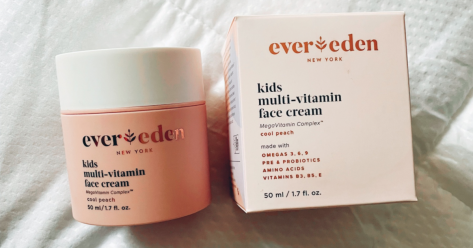Enjoy The Outdoors Again With These Unique Mosquito Repellent Ideas
This post contains affiliate links which may earn Eco Mom Diaries a small commission.
Mosquitoes are a common problem in many parts of the world. Not only do they cause itchy and irritating bites, but they can also transmit diseases such as malaria, dengue fever, and Zika virus. In this article, we will explore some hacks that can help you keep mosquitoes at bay.
What Causes Mosquitoes To Bite Us In The First Place?
Mosquitoes are attracted to humans due to various factors. One of the main reasons is the carbon dioxide that humans exhale, which mosquitoes can detect from a distance.
They are also attracted to the heat, moisture, and certain chemicals that our bodies emit—especially during hot, humid summers.
Once a mosquito lands on a human, it uses its proboscis to penetrate the skin and suck blood. Mosquitoes require blood to produce eggs, so it is a necessary part of their reproductive cycle.
Mosquitoes also inject saliva into the skin, which contains anticoagulants to prevent the blood from clotting. This is what causes the itchy bumps that are commonly associated with mosquito bites.
What Are Some Preventative Measures To Avoid Mosquito Bites
Mosquito bites can be irritating and cause discomfort. Here are some ways to prevent getting bit by a mosquito. By following these preventative measures, you can reduce your risk of getting bit by a mosquito and avoid the discomfort that comes with it.
- Wear long-sleeved shirts and pants to cover exposed skin.
- Use insect repellent on exposed skin and clothing.
- Avoid being outside during peak mosquito activity times, such as dawn and dusk.
- Remove standing water around your home to eliminate mosquito breeding grounds.
- Use mosquito netting over beds and in outdoor areas to prevent bites.
How Can I Effectively Eliminate Mosquito Larvae
One effective way to control the mosquito population is to eliminate their breeding grounds. Here are some natural ways to kill mosquito larvae:
- Egg yolk: Adding egg yolk to stagnant water can kill mosquito larvae. The protein in the egg yolk acts as a toxin that suffocates the larvae.
- Garlic: Garlic is a natural insecticide that can be used to kill mosquito larvae. Crush a few cloves of garlic and add them to stagnant water. The garlic will release a chemical called allicin, which is toxic to mosquito larvae.
- Neem oil: Neem oil is a natural insecticide that can be used to kill mosquito larvae. Add a few drops of neem oil to stagnant water. The oil will coat the surface of the water, suffocating the larvae.
By using these natural methods, you can effectively control the mosquito population in your area without using harmful chemicals.
Remember to regularly check and eliminate any standing water around your home to prevent mosquitoes from breeding.
Unfortunately, mosquito bites can still be a real nuisance, even when you take basic preventive measures mentioned above. So if you find yourself still getting bitten, here are some unique hacks you can try.
Mosquito Hacks You’ve Got To Try In 2023
1. Repel Mosquitoes With Catnip
Catnip is a natural mosquito repellent that has been used for centuries. The plant contains a chemical called nepetalactone, which is what makes it effective at repelling mosquitoes and is more powerful than DEET. When the chemical is released into the air, mosquitoes are repelled by the scent and will avoid the area.
To use catnip as a mosquito repellent, you can crush the leaves and rub them on your skin or clothing. You can also make a catnip tea by boiling the leaves (or commercial tea bags) in water and then spraying the liquid on yourself or in the area you want to protect. Another option is to plant catnip in your yard or garden to naturally repel mosquitoes.
It’s important to note that while catnip is a natural repellent, it may not be as effective as other commercial mosquito repellents. It’s also important to test a small area of your skin before applying catnip to ensure you don’t have an allergic reaction.
Overall, catnip is a safe and natural option for those looking to repel mosquitoes without the use of harsh chemicals.
2. DIY Mosquito Sprays
Mosquitoes can be a real nuisance, especially during the summer months. Fortunately, there are several homemade mosquito sprays that can help repel these pesky insects. Here are a couple of different recipe combinations that you can try out:
Combo #1
1 Cup of witch hazel, 1 tbsp of apple cider vinegar and 20 drops of citronella, tea tree, or cat nip essential oil.
Combo #2
1 cup of isopropyl alcohol, 1 cup of water, 1/2 tsp of catnip essential oil or any other essential oil such as citronella, lavender, or tea tree.
3. Bounce Dryer Sheets
Bounce dryer sheets have been touted as an effective mosquito repellent by many people. The theory behind this is that the scent of the dryer sheets masks the human scent, which attracts mosquitoes. However, it’s important to note that there is limited scientific evidence to support this claim.
According to a study published in the Journal of Insect Science, dryer sheets did not repel mosquitoes. In fact, the researchers found that the dryer sheets had no effect on the mosquitoes’ behavior. Therefore, it is unclear whether or not using dryer sheets as a mosquito repellent is effective.
But, despite the lack of scientific evidence, many people still swear by using dryer sheets as a mosquito repellent. Simply rub a dryer sheet on your clothing or stick one in your front pocket and test it out. You might be the lucky few for whom it works!
4. BBQ Some Fresh Sage & Rosemary
Grilling fresh Sage and rosemary on the grill may be an effective way to ward off mosquitoes. Sage and rosemary contain essential oils that have been found to repel mosquitoes. When grilled, these oils are released into the air, creating a natural mosquito repellent.
In addition to being a natural alternative to chemical mosquito repellents, grilling Sage and rosemary also adds a delicious flavor to your food. These herbs pair well with meats, vegetables, and even fruits.
While grilling Sage and rosemary may not completely eliminate mosquitoes, it can certainly help reduce their presence. Plus, it’s a safe and natural option for those who prefer to avoid chemical insecticides.
5. Rub On Some Coconut Oil
Coconut oil is a popular ingredient in many DIY skincare products, including mosquito repellents. Some people believe that applying coconut oil to their skin can help ward off mosquitoes.
Adding a few drops of an essential oil like tea tree or citronella helps amplify its effectiveness.
Coconut oil contains lauric acid, which has been found to have mosquito-repelling properties. However, the effectiveness of coconut oil as a mosquito repellent is not scientifically proven.
While coconut oil may provide some protection against mosquitoes, it should not be relied upon as the sole method of protection.
6. Hang Some Herbs Up Around Your Patio
Hanging herbs around your patio is an effective way to keep mosquitoes at bay. Mosquitoes are repelled by the scent of certain herbs, including lavender, basil, and mint.
By hanging these herbs in pots or baskets around your patio, you can create a natural barrier that will help keep mosquitoes away.
Lavender is a particularly effective herb for repelling mosquitoes. Its strong scent is known to be unpleasant to mosquitoes, and it can also help to mask the scent of humans, making it more difficult for mosquitoes to find their targets.
Basil and mint are also good options, as they both have strong scents that mosquitoes find unappealing.
To get the most out of your hanging herb garden, be sure to place the pots or baskets in areas where you spend the most time on your patio.
You can also consider planting these herbs in your garden or in pots around your yard to create a more comprehensive mosquito-repelling strategy.
With a little effort, you can enjoy your time outdoors without having to worry about pesky mosquitoes.
7. Spray Your Yard With Mouthwash
Believe it or not, spraying mouthwash all over your yard can be an effective way to repel mosquitoes and ticks!
The menthol and alcohol content in mouthwash can mask the carbon dioxide humans exhale and kill mosquitoes on contact. Using this natural solution can provide relief from mosquito bites and allow you to enjoy your time outdoors during the summer months.
Just fill up a spray bottle with as much Listerine or other brand as you’d like (DO NOT DILUTE IT), and spray your entire yard with it—I’m talking picnic table, playground equipment and even grass.
Be sure to focus on areas where mosquitoes are likely to breed, such as standing water and damp vegetation. Swishing your mouth with it also helps, as direct contact with your mouth will also mask carbon dioxide.
8. Grow Some Citronella Plants
Citronella plants are a natural and effective way to repel mosquitoes in your yard. These plants contain citronella oil, which is a natural insect repellent. Planting citronella in your yard can help reduce the number of mosquitoes in the area.
To grow citronella plants, choose a sunny location with well-draining soil. Plant the citronella in a pot or directly in the ground. Water the plants regularly and fertilize them with a balanced fertilizer. Citronella plants can grow up to five feet tall, so be sure to give them enough space to grow.
In addition to repelling mosquitoes, citronella plants also have a pleasant lemony scent. They are a great addition to any yard or garden and can help create a more enjoyable outdoor space.
9. Fill Your Yard Or Patio With Bamboo Plants To Attract Dragon Flies
Dragonflies are not only beautiful to look at, but they also serve an important purpose in the ecosystem. They are natural predators of mosquitoes and can eat hundreds of them in a single day.
By attracting dragonflies to your yard with bamboo plants, you can help to control the mosquito population and create a more enjoyable outdoor environment.
Bamboo plants are easy to care for and can grow in a variety of climates. They are also a sustainable choice, as bamboo is a fast-growing and renewable resource.
By adding bamboo plants to your yard, you can not only attract dragonflies and repel mosquitoes, but also make a positive impact on the environment.
10. Make It Hard For Them To Fly With An Outdoor Fan
Outdoor fans are a great way to keep mosquitos away. The breeze created by the fan makes it difficult for mosquitos to fly, which reduces their ability to bite.
Additionally, fans help to disperse the carbon dioxide we exhale, which is one of the things that attracts mosquitos to us in the first place.
When using an outdoor fan to keep mosquitos away, it’s important to position the fan correctly. Place the fan so that it’s blowing directly on you, but not so close that it’s blowing away the scent of any mosquito repellent you may be wearing.
It’s also a good idea to use a fan with a higher RPM, as this will create a stronger breeze and be more effective at keeping mosquitos at bay.












![Best Eco-Friendly Disposable Diapers [That Actually Don’t Leak]](https://irockmomjeanscom.files.wordpress.com/2023/05/2dc87387-d99d-4870-9998-0b76baaec04d.png?w=474)


